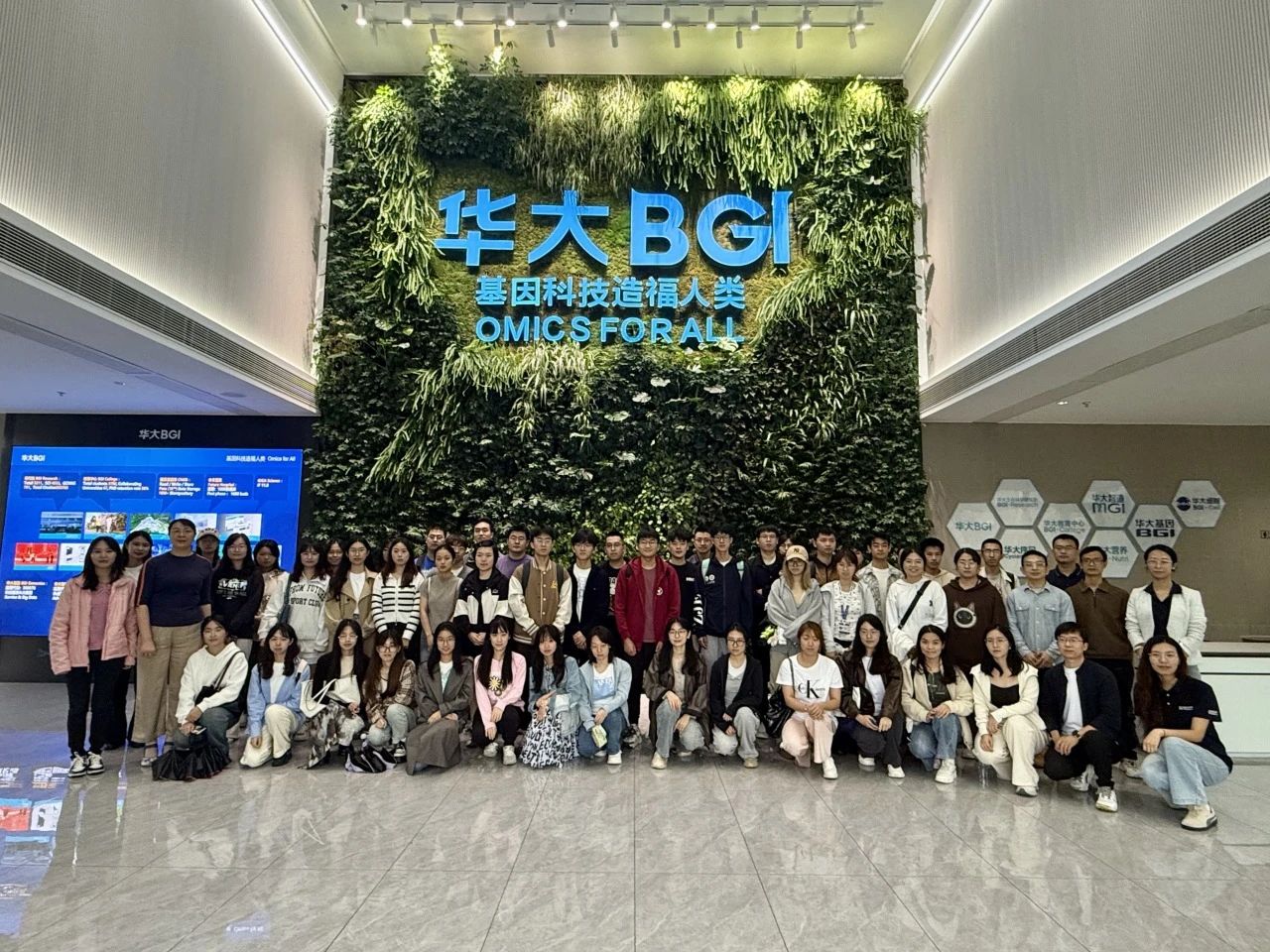
On October 16, 2024, a delegation of 53 students and faculty from the Zhejiang University-University of Edinburgh Institute (ZJE) visited BGI Life Sciences Institute in Hangzhou. As part of the institute’s outreach to bridge academia with industry, this visit aimed to offer students insight into cutting-edge gene technology and its real-world applications. Under the guidance of Zhang He, Dean of the Hangzhou Institute, students toured the Life Omics Big Data Center and engaged in discussions on BGI’s educational innovations and talent development strategy.
Pioneering Research at BGI Life Sciences Institute
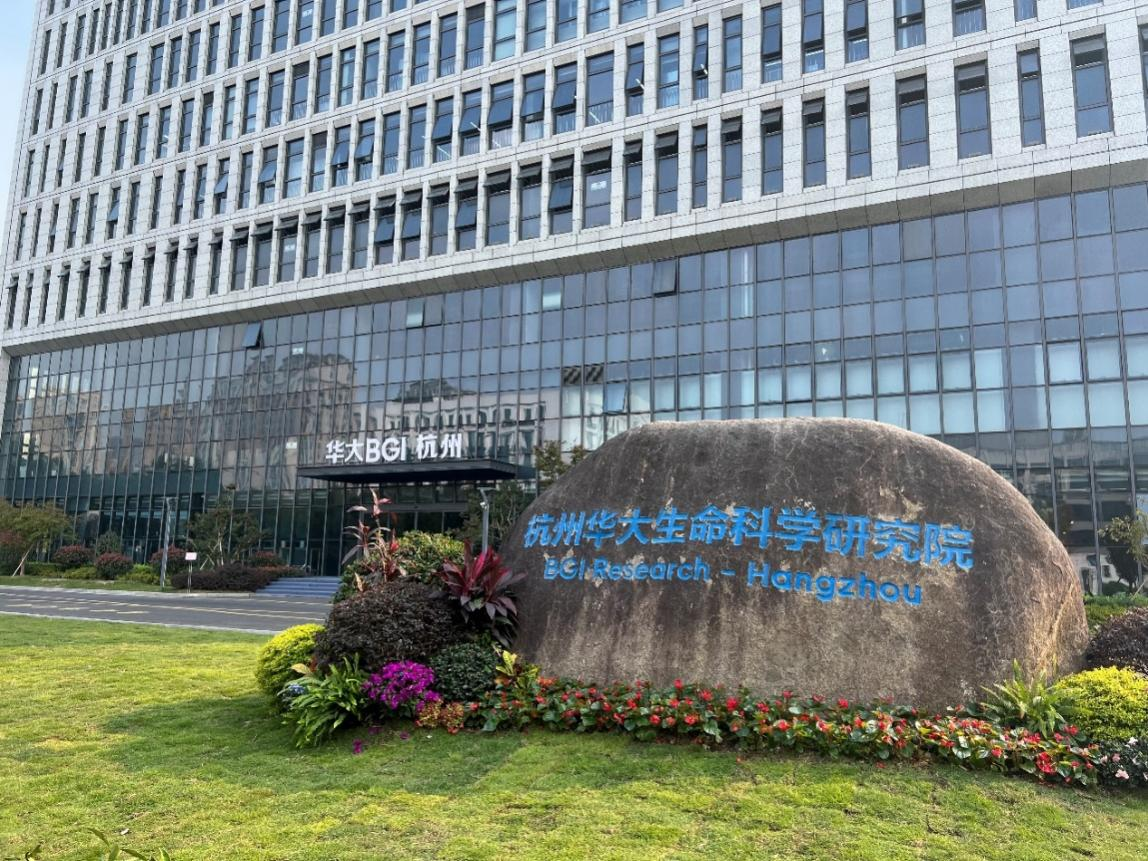
Founded in 1999, BGI has become a leading figure in life sciences, driven by a mission to “use gene technology for the benefit of humanity.” Its global reach spans over 100 countries, with collaborations integrating genomics advances into healthcare, conservation, and forensic science. The Hangzhou branch, co-established by BGI, Hangzhou’s municipal government, and Xihu District, launched in 2022 and focuses on pioneering research in brain science, anti-aging, and cellular therapy.
BGI Hangzhou features five specialized research centers and three high-throughput platforms, advancing critical fields like genomics and synthetic biology. Zhang He highlighted the institute’s ongoing innovations, presenting its high-impact publications and technological breakthroughs in fields that promise to redefine health and medical science.
Life Omics Big Data Center
“Decoding Life,” “Redefining Life,” “Storing Life”
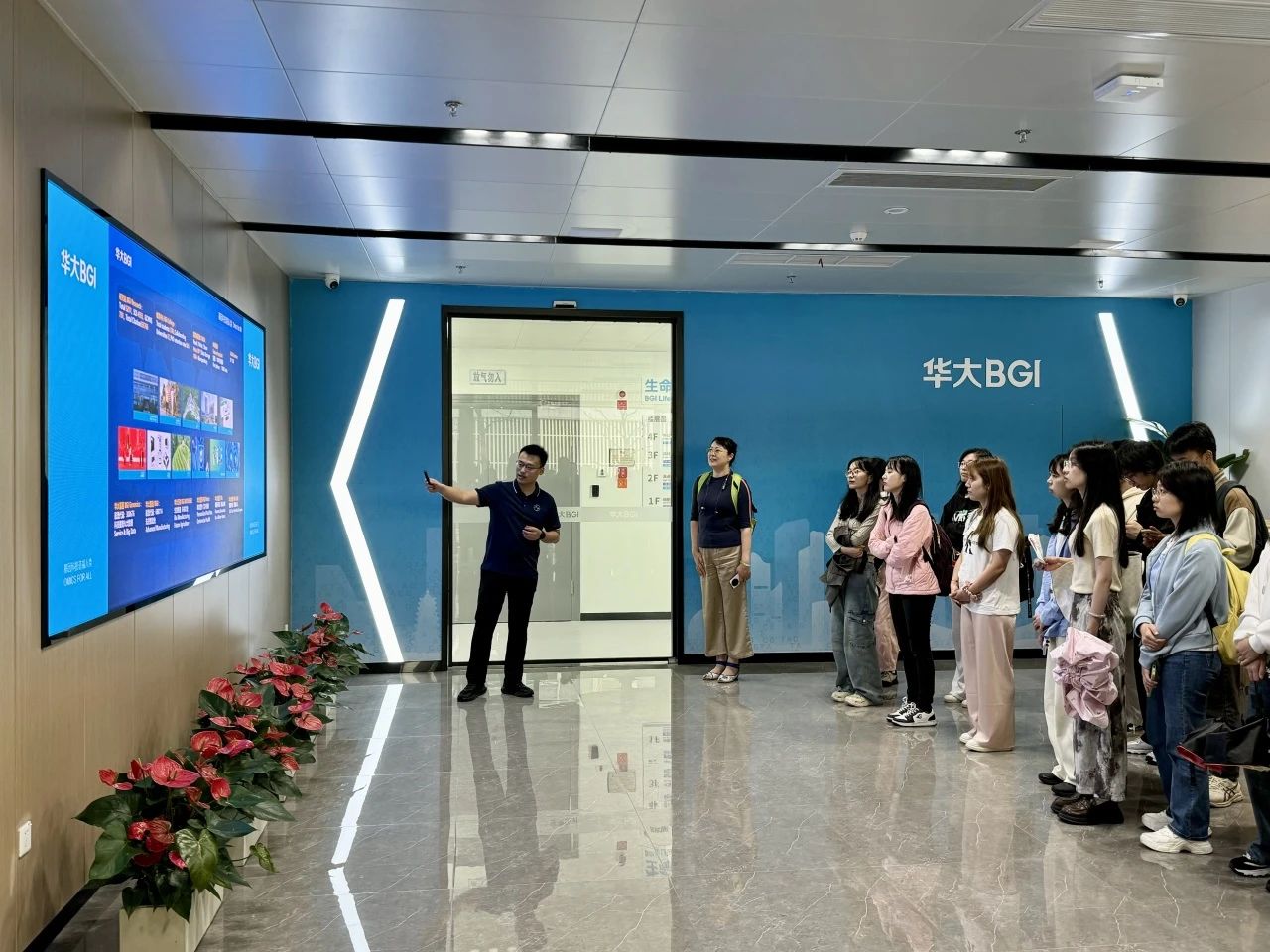
BGI Life Sciences Institute’s dean, Zhang He, welcomed ZJE students and faculty and guided them through the Life Omics Big Data Center. He introduced the institute’s founding story and recent achievements, including high-impact publications and patents.
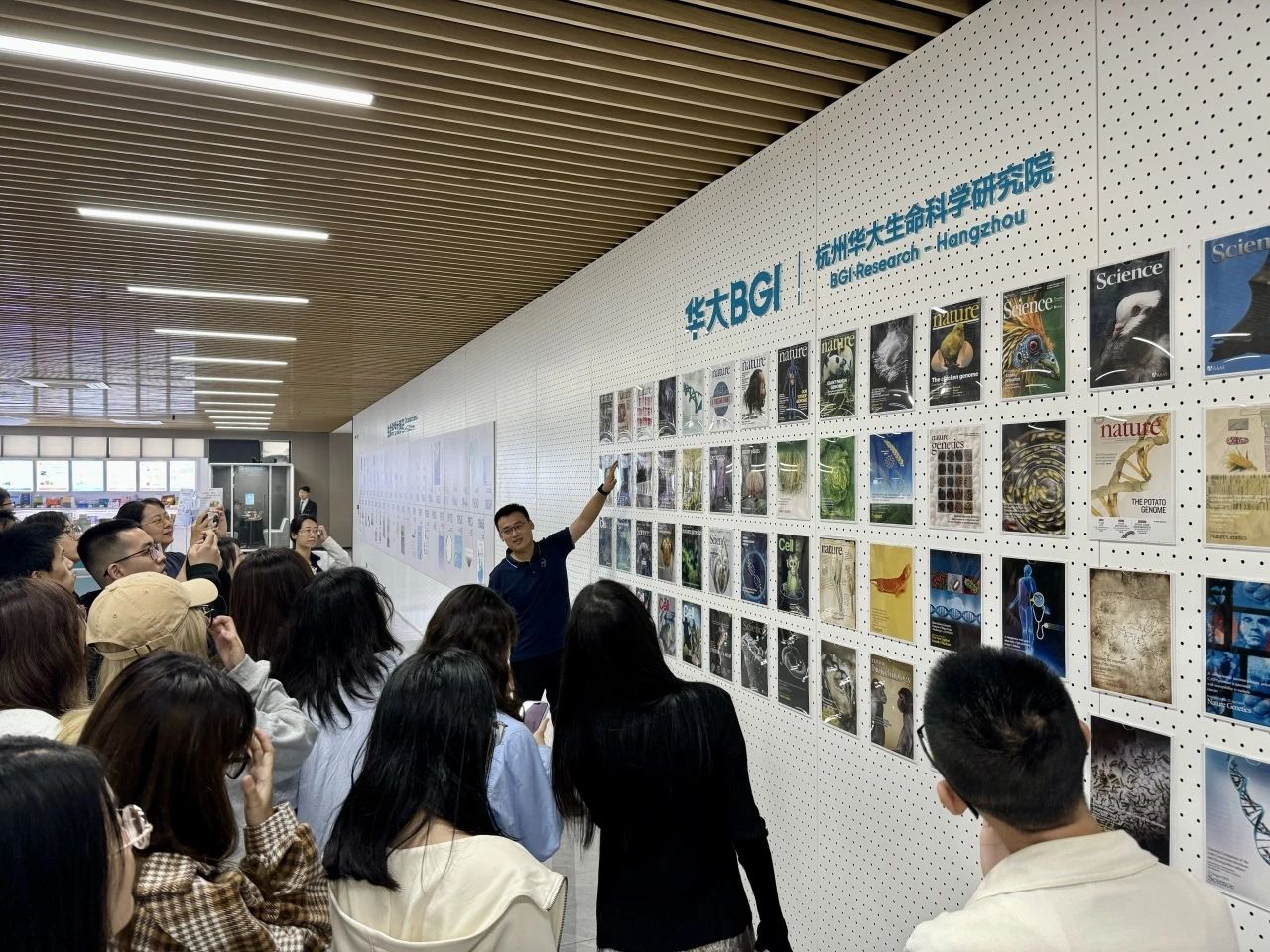
The institute’s research emphasizes health sciences, focusing on areas such as aging and regeneration, cell therapy, and brain disease research. Collaborating with local resources, the institute undertakes organized scientific initiatives and large-scale research alliances. Concurrently, the institute advances core technologies in genomics, continuously overcoming challenges in sequencing and omics technologies.
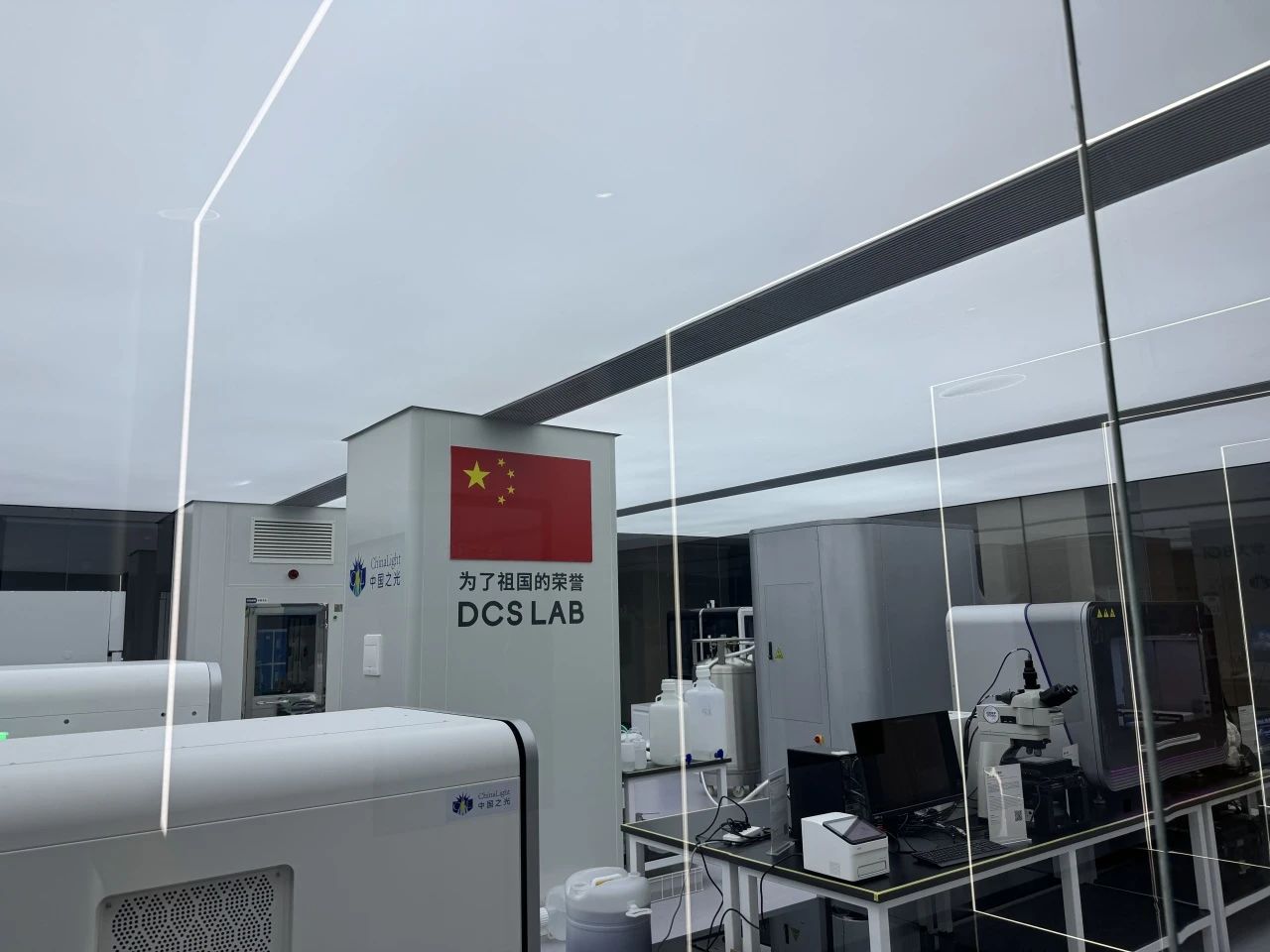
Lectures and Discussions
Leading Genomics Innovation Through the “Research-Industry-Education” Model
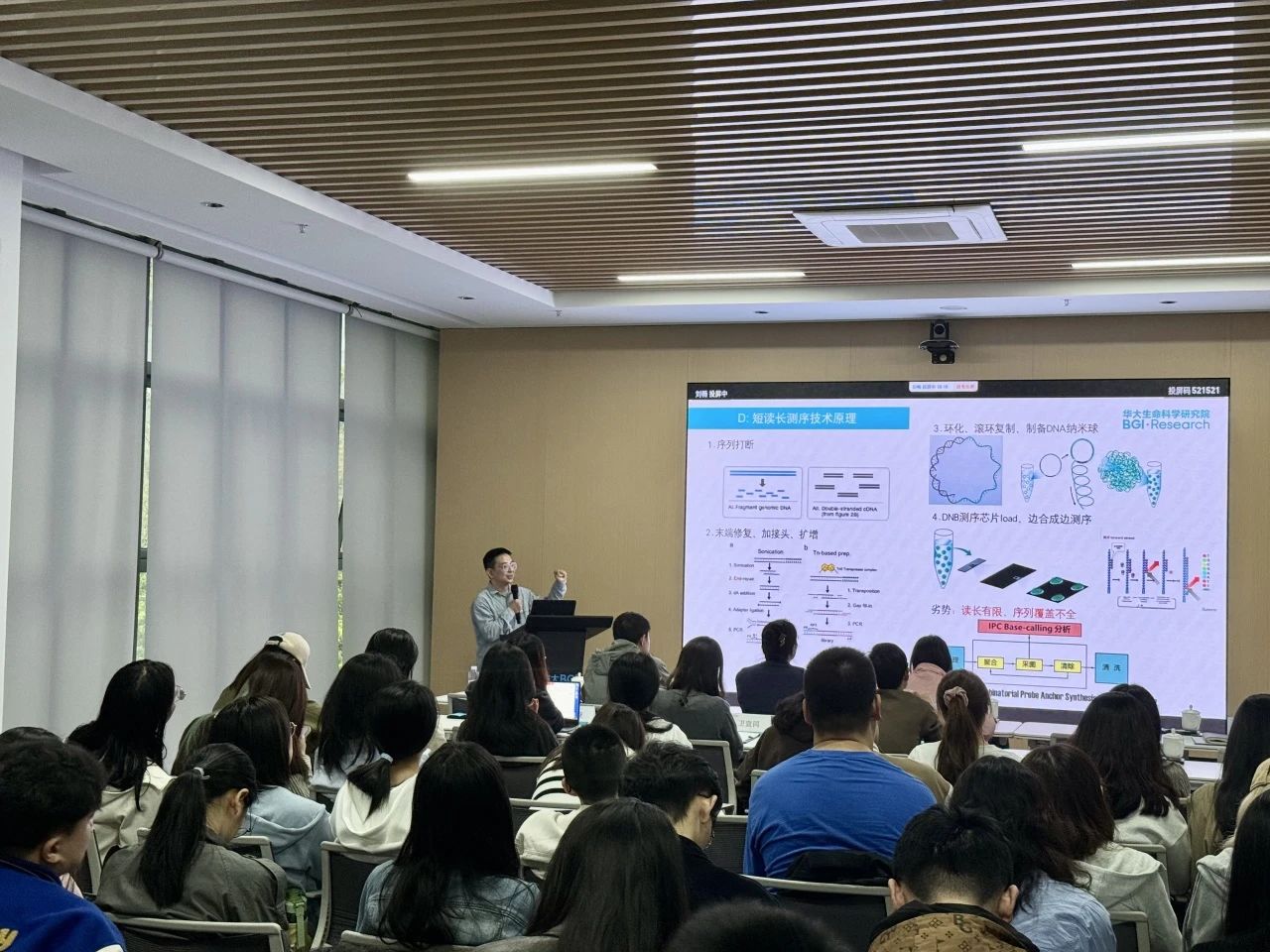
In the academic session, Chen Guang, Deputy Director of BGI Genomics in East China, delivered a lecture titled “DCS Technology Development, Applications, and Platform,” covering DNA Omics, Cell Omics, and Spatial Omics technologies and their applications in cross-disciplinary and collaborative innovation.
Associate Researcher Liu Chang from BGI’s Biotechnology Department presented “Innovations and Applications of Single-Cell Omics Sequencing Technology,” illustrating how foundational technologies drive breakthroughs in clinical applications and industry.
Li Yifan, Head of BGI’s Eastern Education Center, and Shen Yunya, Head of Human Resources at BGI Hangzhou, gave talks on “BGI’s Innovative Education Model” and “BGI’s Talent Development Strategy,” respectively. They introduced BGI’s approach to talent acquisition, training, and development, highlighting a project-based talent cultivation philosophy that encourages students to enhance self-learning and grow through practice.
Reflections on the Visit
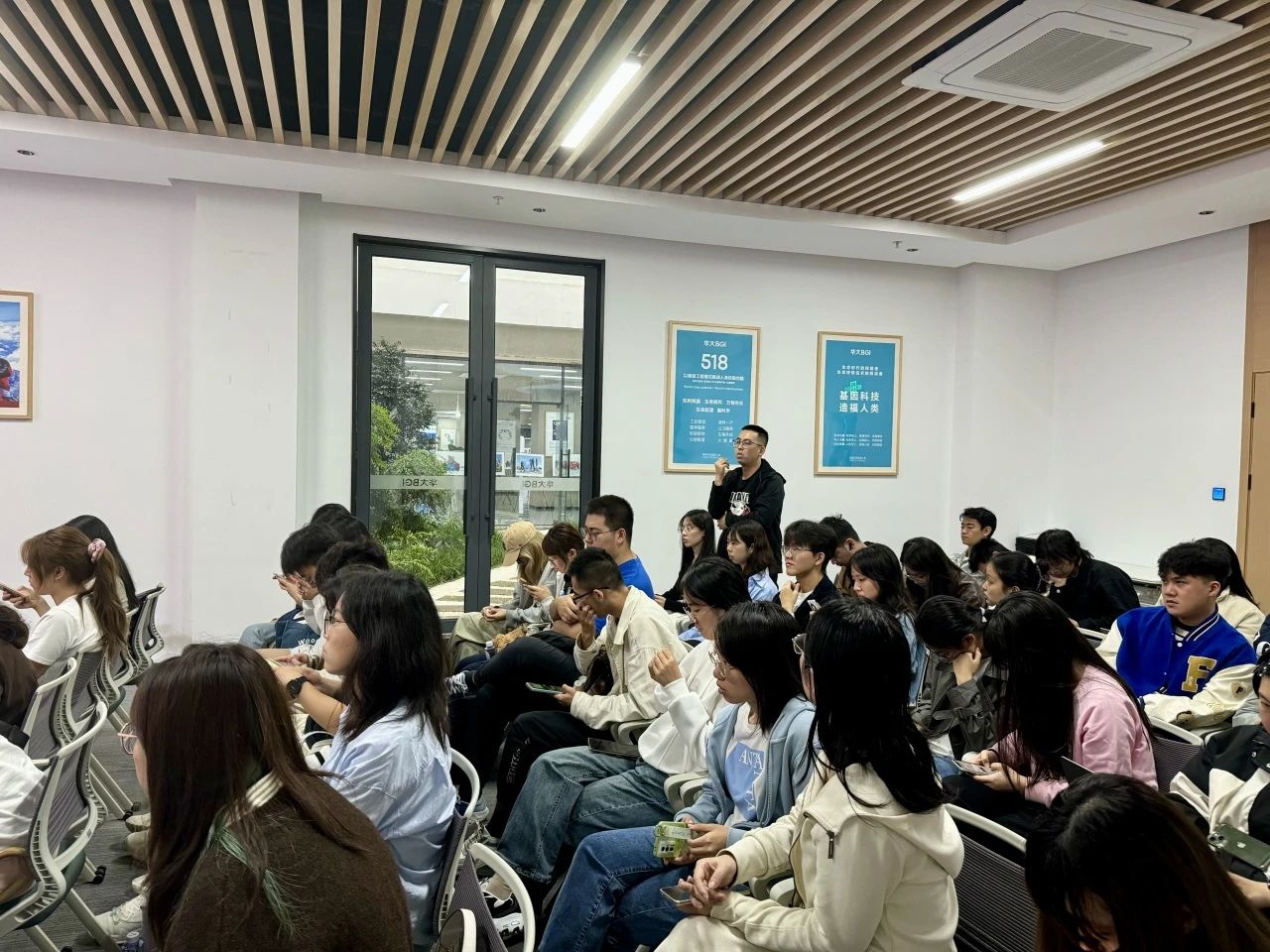
“Single-cell sequencing can precisely capture the dynamic gene expression changes during embryonic development. When combined with spatial transcriptomics, it offers accurate spatial localization, providing a new perspective for understanding cell fate decisions and differentiation pathways in embryonic development. This visit broadened my perspective on single-cell technology applications and inspired me to think about how these advanced technologies can be more effectively applied to current research, helping me to better analyze key processes in embryonic development and advance my research project.”
—Zhu Hongchen, ZJE Master’s Student
“During today’s visit to BGI Hangzhou, I was deeply impressed by BGI’s leadership in the sequencing industry. From traditional second-generation sequencing to the latest spatial transcriptomics, BGI remains at the forefront. This experience gave me a genuine sense of what it means for knowledge to translate into tangible products, and reinforced the importance of our lab work. I am now more determined to study and practice diligently to transform my knowledge into products and technologies that benefit humanity.”
—Zhao Hang, ZJE PhD Student
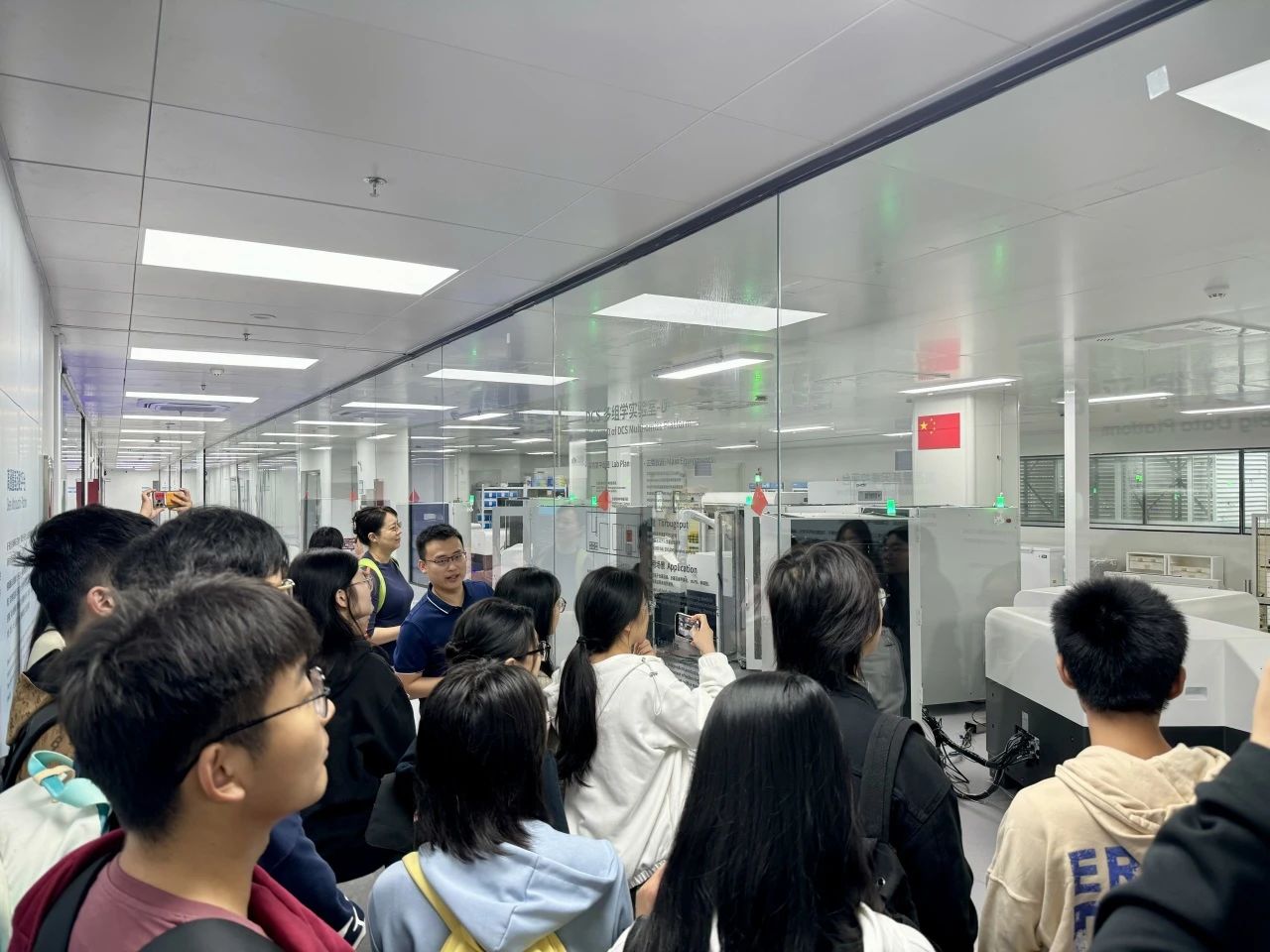
“This visit to BGI Hangzhou was incredibly valuable. Not only did I gain insights into the company’s development, but I also learned about key research projects, which deepened my understanding of the industry’s direction. The spatial transcriptomics project introduced by BGI researchers broadened my knowledge of its applications. Additionally, the human resources team’s presentation on talent selection reflected the company’s commitment to valuing talent. The collaboration projects between the company and universities highlighted the innovative ‘research-industry-education’ model. I am convinced that gene technology will play an increasingly vital role in fields like medical health. This visit not only gave me a clearer picture of a biotechnology company’s operations but also inspired my interest in the life sciences field.”
—Qian Qiuting, ZJE PhD Student
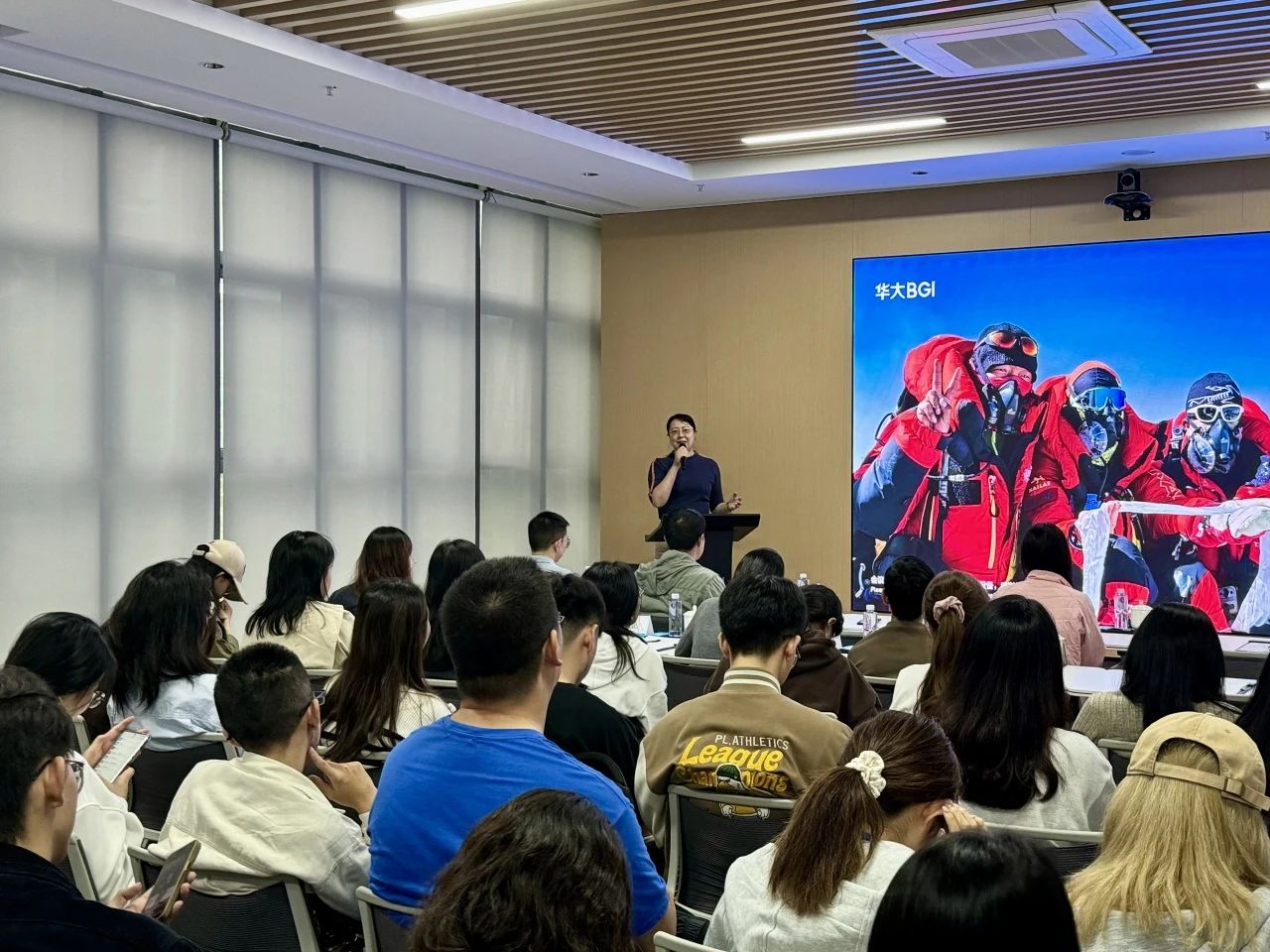
The goal of this industry visit was to help students understand the workings of a global leader in life sciences, encouraging them to integrate classroom knowledge with industry practices to enhance their professional competencies and support their career planning. ZJE Associate Professor Chi Ying, Assistant Professor Liu Hengjia, and student counsellors Wang Ruidong and Wei Xuantong also participated in this event. (Text and images: Wang Ruidong)







